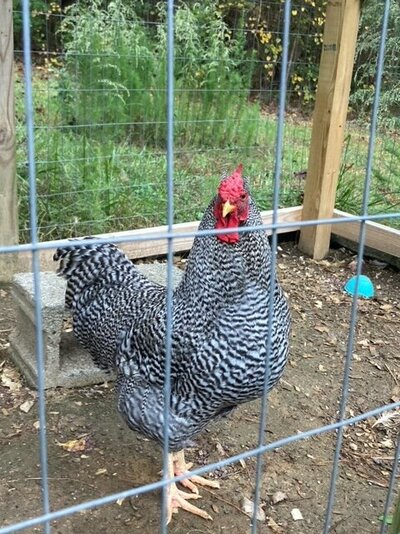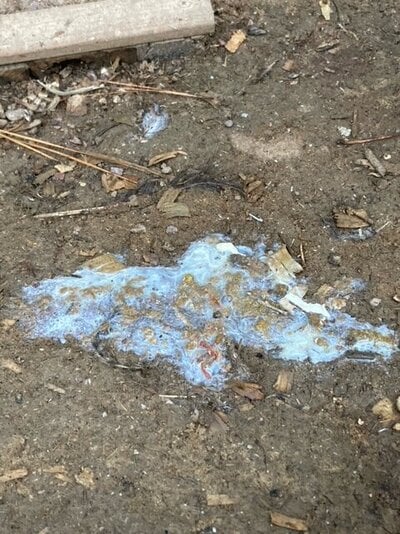We have a small flock that has been having chronic diarrhea for a couple of months. The flock is mixed: One Dominique rooster, one Wyandotte hen, and one bantam hen (I'm blanking on the specific breed). We have 4 new hens separate from them that we want to introduce, but are waiting to get the diarrhea under control first.
They're fed Purina layer pellets and we supplement with random grains, vegetables, dried soldier fly larvae, etc. The two hens were laying fine for a while and then just stopped late summer (it's October now). Then, the bantam and the rooster started having diarrhea and haven't stopped. We took the bantam to a vet and were prescribed antibiotics for both of them. He suspected a chronic bacterial infection. We also gave them dewormer (Fenbendazole) and did notice some worms in the bantam's poop. Unfortunately, the bantam didn't recover and died last week. They both had been eating/drinking fine.
I usually clean their coop out once a week, but almost have to do part of it everyday because of how bad the diarrhea is.
Does anyone have any other ideas? All of the other threads and forums I've read on here suggest that this is worms but we've been routinely deworming our remaining birds ever since the bantam died.
Any input is appreciated!
They're fed Purina layer pellets and we supplement with random grains, vegetables, dried soldier fly larvae, etc. The two hens were laying fine for a while and then just stopped late summer (it's October now). Then, the bantam and the rooster started having diarrhea and haven't stopped. We took the bantam to a vet and were prescribed antibiotics for both of them. He suspected a chronic bacterial infection. We also gave them dewormer (Fenbendazole) and did notice some worms in the bantam's poop. Unfortunately, the bantam didn't recover and died last week. They both had been eating/drinking fine.
I usually clean their coop out once a week, but almost have to do part of it everyday because of how bad the diarrhea is.
Does anyone have any other ideas? All of the other threads and forums I've read on here suggest that this is worms but we've been routinely deworming our remaining birds ever since the bantam died.
Any input is appreciated!





